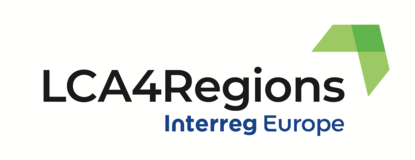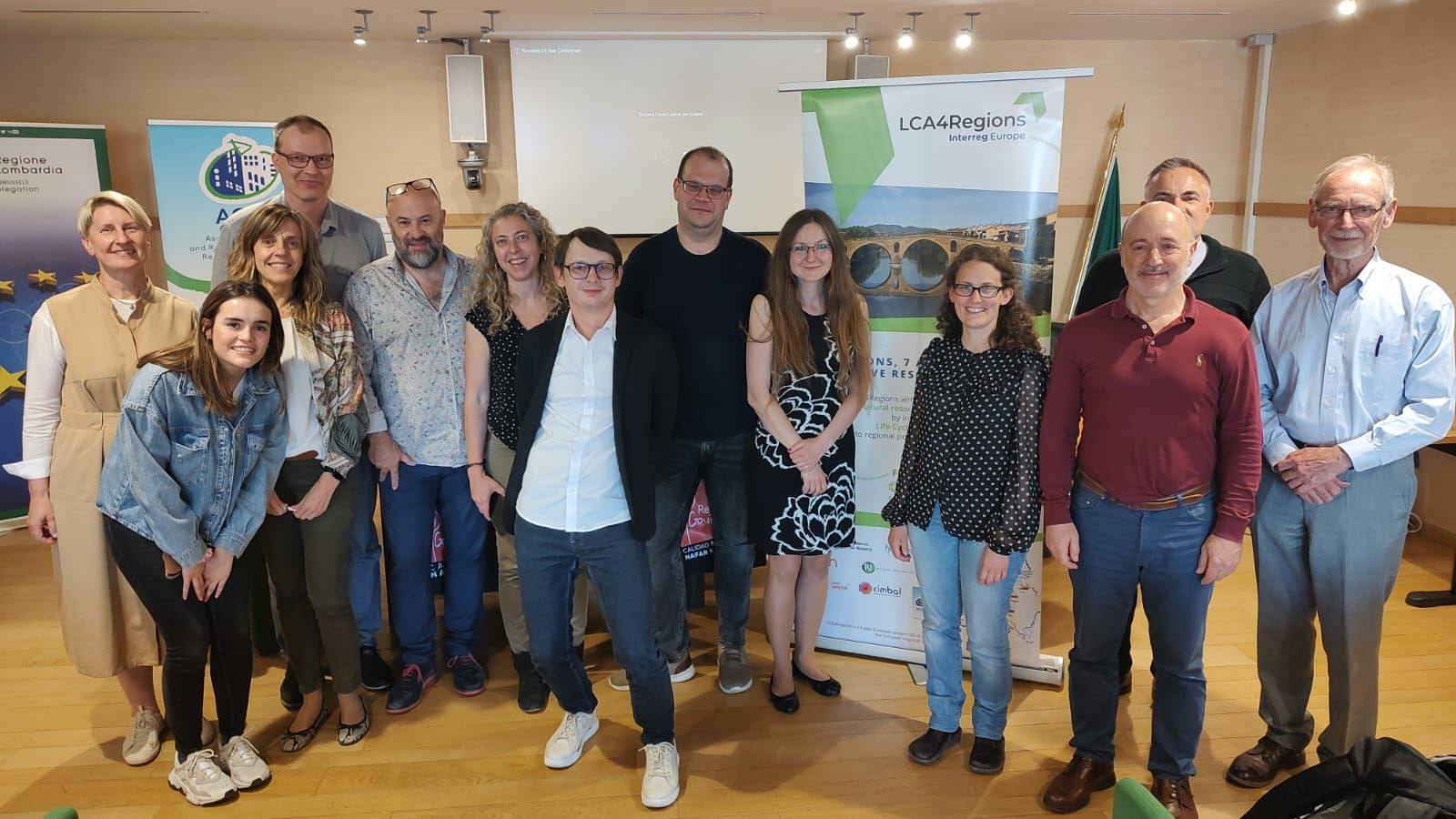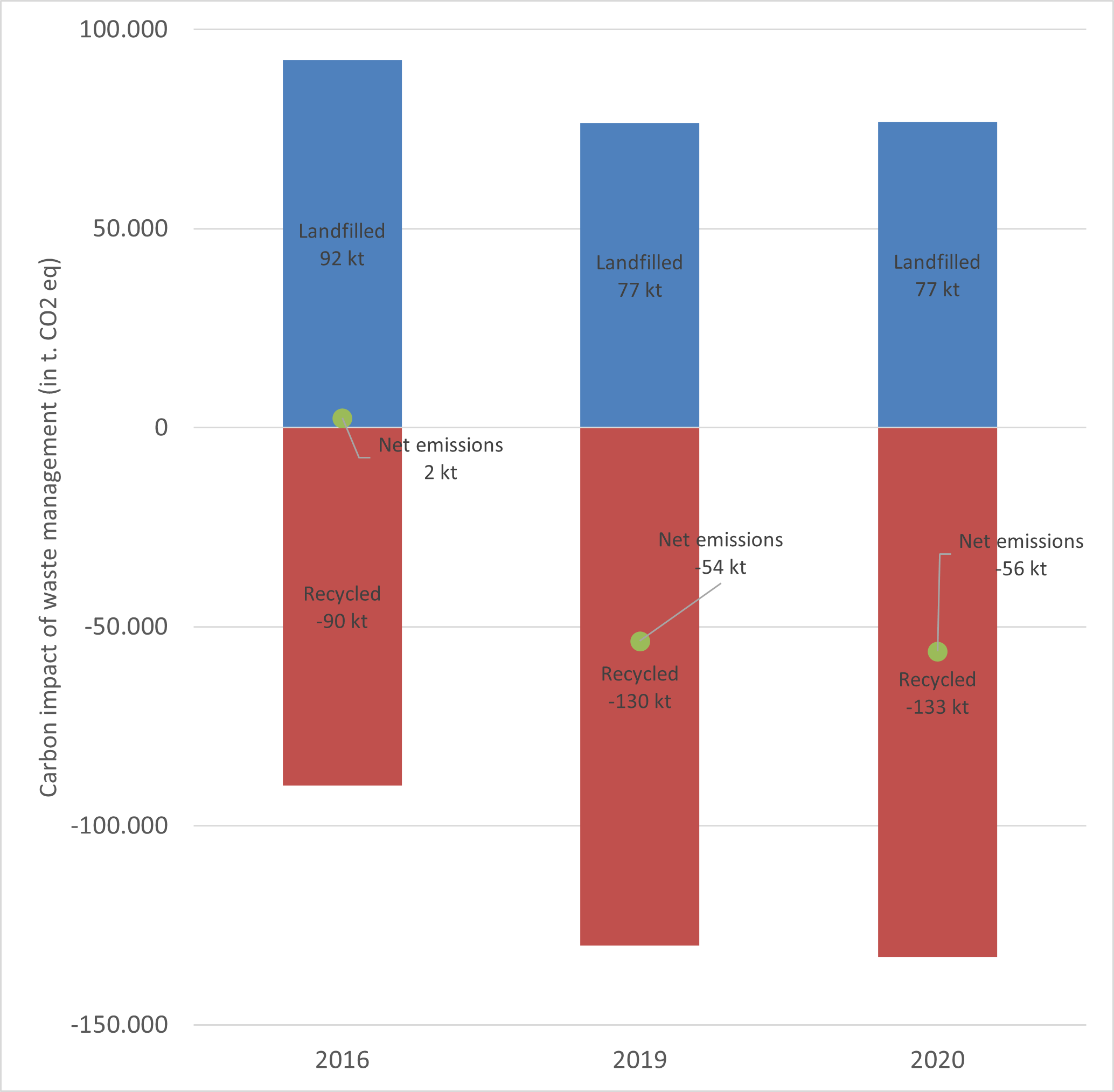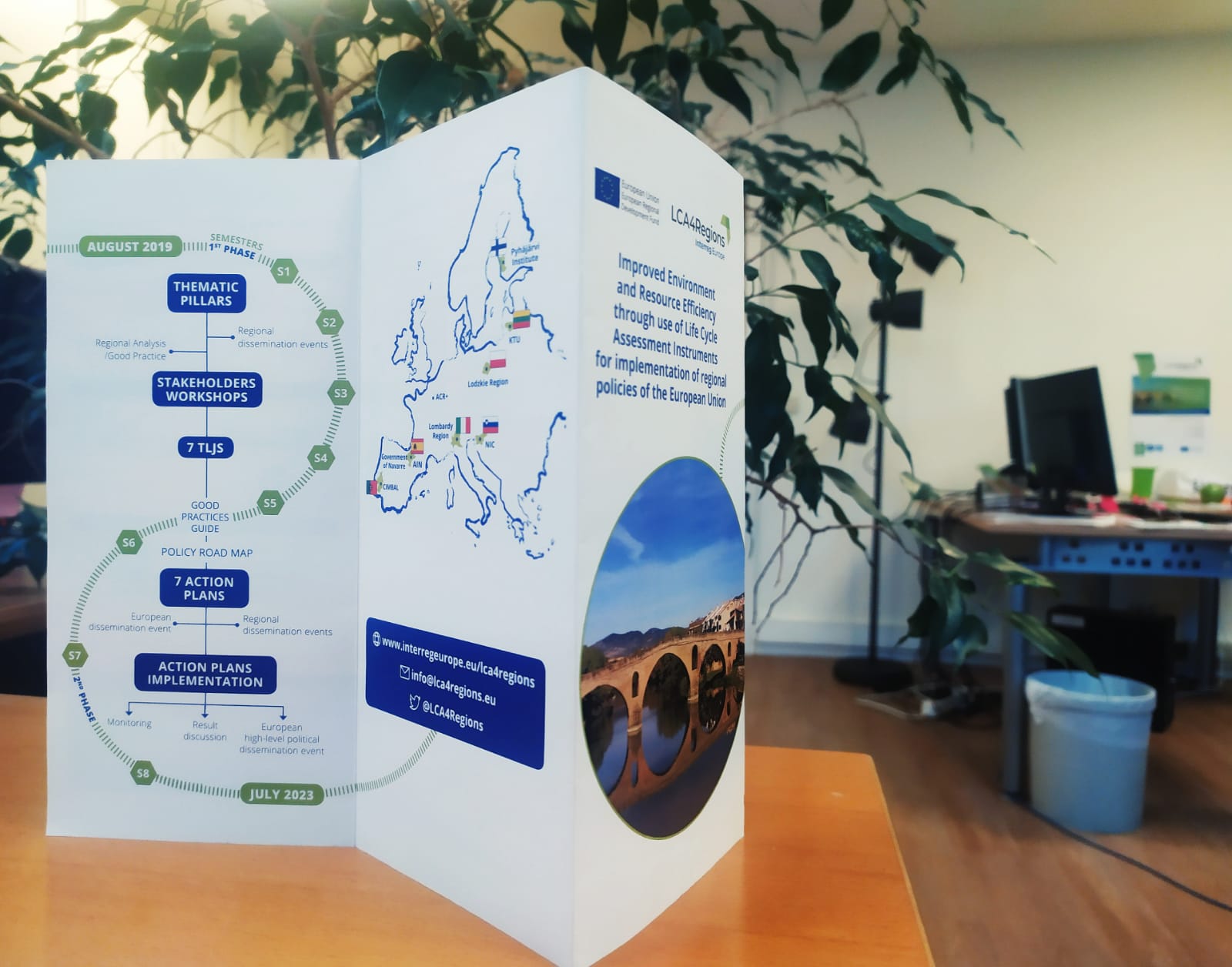In February 2021, three new territories joined the campaign “More Circularity, Less Carbon” launched by ACR+ to encourage its members to reduce their carbon emissions linked with local resource management. Navarre is one of them! Together with the city of Odense (DK) and the Southern and Eastern Midlands Waste Region (IE), the lead partner of LCA4Regions will be using the Carbon Metric International to determine its waste carbon footprint. The waste carbon footprint includes the carbon emissions emitted during the collection, transport, and treatment of waste, the emissions saved thanks to recycling and recovery, and the embodied emissions, meaning the emissions generated by the production of goods that became waste. Following this, it will be possible to identify the most carbon intensive waste materials and so to understand on what future policy interventions should focus in order to reduce carbon impacts by 2025.
For Navarre, the benefits of joining “More Circularity, Less Carbon” are multiple. The region is pioneer (at a national level) on collecting separate waste flows thanks to the contributions made by citizens to the paper & cardboard, glass and packaging containers/bins. Although the COVID-19 pandemic has prevented Navarre to achieve its 50% goal, the region still boasts a global recycling rate of 47%. New actions are in the way to make accessible for all citizens a system to collect organic matter.
The MCLC campaign will support the region to follow this path and continue improving. It will help to assess the carbon emissions of its waste management system, improve the monitoring of the Navarra Waste Plan 2017-2027 and probably arise aspects to develop that could be part of the action plan of the region regarding the LCA4Regions project.
Navarra will walk in the footsteps of the first cohort of members composed by Pays de la Loire, Brussels-Capital, and the municipality of Genoa. These territories already collected and analysed their waste data. The results are now available, and highlight common trends, such as the significant impact of textiles, plastic, and food waste, and the importance to focus on prevention and re-use.
Read the analysis reports of Pays de la Loire, Brussels-Capital and Genoa here.
More information on the campaign here.










